Nicole Paris and Ed Cage: A beatboxing lesson from a father-daughter duo

Nicole Paris was raised to be a beatboxer -- when she was young, her father, Ed Cage, used to beatbox her to sleep at night. Now the duo is known for their beatbox battles and jam sessions, which mix classic rap beats with electronic dance sounds. Prepare yourself for a bit of a hip-hop history lesson, and enjoy the show.
Hanako Sawada: Test yourself: Can you tell the difference between music and noise?
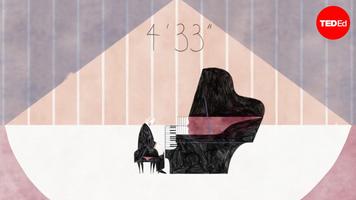
In 1960, composer John Cage went on television to share his latest work. But rather than using traditional instruments, Cage appeared surrounded by household clutter, including a bathtub, ice cubes, a toy fish, a rubber duck, several radios, and performed "Water Walk." Most people watching had the same question: is this even music? Hanako Sawada...
Roni Shanoada: How does heart transplant surgery work?
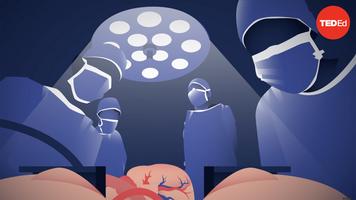
Your heart beats more than 100,000 times a day. In just a minute, it pumps over five liters of blood throughout your body. But unlike skin and bones, the heart has a limited ability to repair itself. So if this organ is severely damaged, there's often only one medical solution: replacing it. Roni Shanoada explores how this complex and intricate ...
Marie Brodsky: Can you solve the birthday cake riddle?
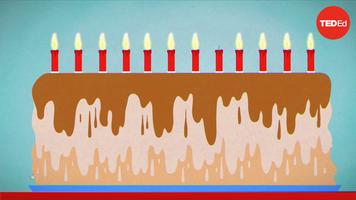
Your friend's birthday is tomorrow, and he's turning... well... you've forgotten. A ginormous cake has been prepared and your job is to sculpt his age as the chocolate centerpiece. The birthday boy is a giant, and you're afraid that if your forgetfulness becomes known, you'll become part of the feast. Can you figure out your friend's age before ...
Albert Zink: A 5,300-year-old murder mystery
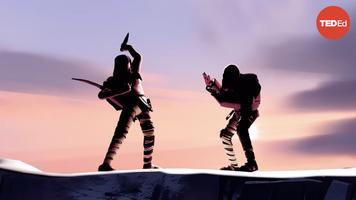
In September 1991, two hikers discovered a corpse emerging from the ice. Researchers soon realized they were looking at the mummified body of a man who'd lived about 5,300 years ago, and theorized he got caught in bad weather and froze. However, a shocking discovery revealed his true cause of death and upended his story. So, how did he die? Albe...
Shannon Odell: What's the smartest age?
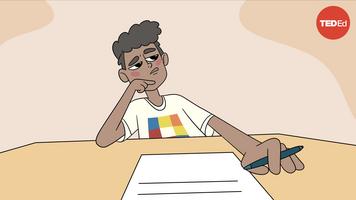
Tomorrow is the annual Brain Clash — a decathlon of mental challenges, trivia competitions, and puzzles. Amir needs a smart and capable teammate and must choose between three people; all of different ages and talents. So, who should Amir choose for the contest? Shannon Odell breaks down the idea of "smart" and explores how our brain development ...
Alex Gendler: Plato's Allegory of the Cave
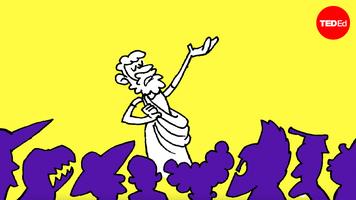
Twenty four hundred years ago, Plato, one of history’s most famous thinkers, said life is like being chained up in a cave forced to watch shadows flitting across a stone wall. Beyond sounding quite morbid, what exactly did he mean? Alex Gendler unravels Plato's Allegory of the Cave, found in Book VII of "The Republic." [Directed by John R. Dilwo...
Kiah Williams: 3 reasons why medications are so expensive in the US
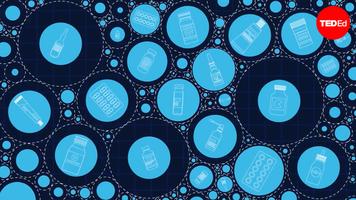
A century after its discovery, insulin remain essential in treating diabetes, and has a relatively low production cost, with a vial generally costing less than $6 to make. But those in the US pay on average 10 times more than those in other countries— leading some patients to take less than prescribed. Kiah Williams takes a look at the US supply...
Melvin Sanicas: Why is meningitis so dangerous?
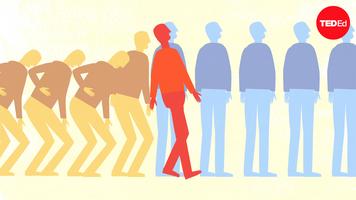
In 1987, thousands of people gathered in Saudi Arabia for the annual Hajj pilgrimage. But what started out as a celebration led to a worldwide health crisis: more than 2,000 cases of meningitis broke out, spreading across Saudi Arabia and the rest of the world. How did it spread so quickly and what makes meningitis so dangerous? Melvin Sanicas e...
Shaylin Schundler: Why does your voice change as you get older?
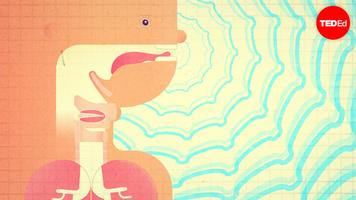
The human voice is capable of incredible variety and range. As we age, our bodies undergo two major changes which explore that range. So how exactly does our voice box work, and what causes these shifts in speech? Shaylin A. Schundler describes how and why our voices change when we get older. [TED-Ed Animation by Andrew Foerster & Nick Counter]
Emma Bryce: The case of the vanishing honeybees

In the past decade, the US honeybee population has been decreasing at an alarming and unprecedented rate. While this is obviously bad news for honeypots everywhere, bees also help feed us in a bigger way -- by pollinating our nation's crops. Emma Bryce investigates potential causes for this widespread colony collapse disorder. [Directed by Lilli...
Monica Menesini: Why do our bodies age?
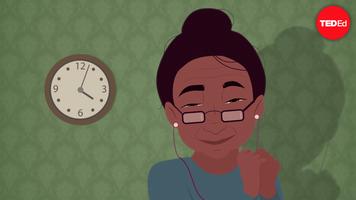
Human bodies aren't built for extreme aging: our capacity is set at about 90 years. But what does aging really mean, and how does it counteract the body's efforts to stay alive? Monica Menesini details the nine physiological traits that play a central role in aging. [Directed by Cinematic, narrated by Pen-Pen Chen].
Alex Rosenthal: Can you solve a mystery before Sherlock Holmes?
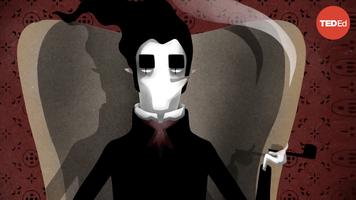
One day in the fall, you called upon your friend, Sherlock Holmes, and found him in conversation with Jabez Wilson. Wilson had been working for the mysterious League of Red-Headed Men. Today, he arrived at work to find the group had disappeared, and now turns to Holmes to make sense of the events. Follow the detective and see if you can solve th...
Alex Rosenthal and George Zaidan: The case of the missing fractals
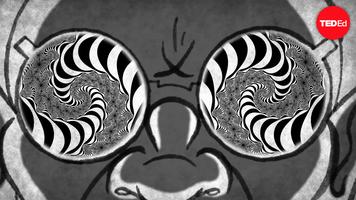
A bump on the head, a mysterious femme fatale and a strange encounter on a windswept peak all add up to a heck of a night for Manny Brot, Private Eye. Watch as he tries his hand at saving the dame and getting the cash! Shudder at the mind-bending geometric riddles! Thrill to the stunning solution of The Case of the Missing Fractals. [Directed by...
John Cameron: Why do we hiccup?
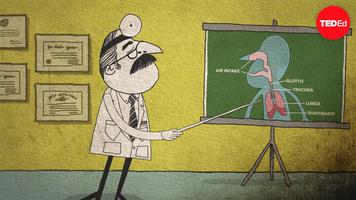
The longest recorded case of hiccups lasted for 68 years ... and was caused by a falling hog. While that level of severity is extremely uncommon, most of us are no stranger to an occasional case of the hiccups. But what causes these 'hics' in the first place? John Cameron takes us into the diaphragm to find out. [Directed by Black Powder Design,...
Mostafa Minawi: The rise of the Ottoman Empire
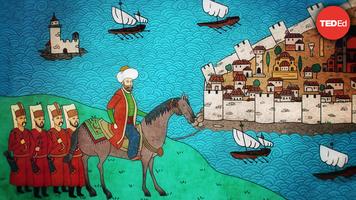
In the late 13th century, Osman I established a small principality sandwiched between a crumbling Byzantine Empire and a weakened Sultanate of the Seljuk of Rum, in what is now Turkey. In just a few generations, this territory had outmaneuvered more powerful neighbors to become the vast Ottoman Empire. What enabled its rapid rise? Mostafa Minawi...
George Zaidan: How do pain relievers work?
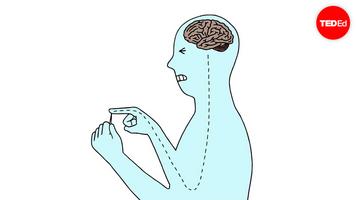
Some people take aspirin or ibuprofen to treat everyday aches and pains but how exactly do the different classes of pain relievers work? Learn about the basic physiology of how humans experience pain and the mechanics of the medicines we've invented to block or circumvent that discomfort. [Lesson by George Zaidan, directed by Hal Lee, narrated b...
Ramon Glazov: Ancient Rome's most notorious doctor
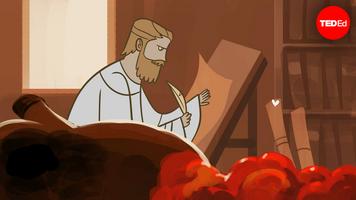
In the 16th century, an anatomist named Andreas Vesalius made a shocking discovery: the most famous human anatomy texts in the world were wrong. While Vesalius knew he was right, announcing the errors would mean challenging Galen of Pergamon. Who was this towering figure? And why was he still revered and feared 1,300 years later? Ramon Glazov pr...
Judy Cebra-Thomas: How turtle shells evolved... twice
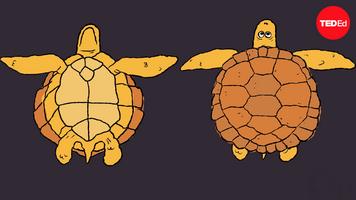
Modern turtle shells are almost as diverse as the turtles themselves. Sea turtles have flatter, lighter shells for gliding through the water. Land-dwelling tortoises have domed shells that can slip free of predators' jaws. Leatherback turtles have shells without the ring of bone around the edge. So how did the shell evolve? Judy Cebra-Thomas exp...
Birte Kristiansen and Petra Sijpesteijn: A day in the Islamic Golden Age
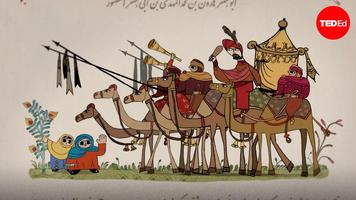
It's 791 CE. As the morning sun shines on the Golden Gate Palace, brother and sister Hisham and Asma prepare for the journey of a lifetime: the hajj, a holy pilgrimage to Mecca. They intend to travel with the big hajj caravan— but a last-minute mishap threatens to undo months of careful planning. Birte Kristiansen and Petra Sijpesteijn detail a ...
Claire Simeone: The lovable (and lethal) sea lion
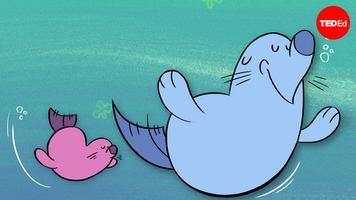
Sunning themselves on rocks or waddling awkwardly across the beach, it's easy to think of sea lions more as sea house cats. But don't be fooled by their beachside behavior. Under the waves, sea lions are incredible endurance hunters, reaching speeds of 18 miles an hour and hunting for up to 30 hours at a time. Claire Simeone dives into what make...
Ji Hao: The tale of the Monkey King and the Buddha
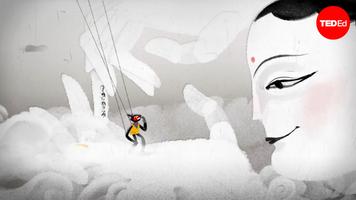
After wreaking havoc across the heavens and being captured in a white-hot prison cell, the Monkey King freed himself once more and was itching for a fight. Desperate, the Jade Emperor called on the supreme power in all the heavens: the Buddha himself. But even in the face of this almighty opponent, Sun Wukong was not cowed. Ji Hao follows the Mo...
Joao Pedro de Magalhaes: Why do animals have such different lifespans?
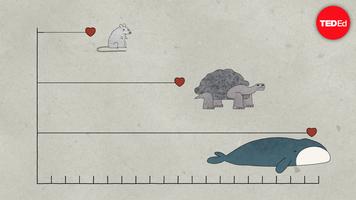
For the microscopic lab worm C. elegans, life equates to just a few short weeks on Earth. The bowhead whale, on the other hand, can live over two hundred years. Why are these lifespans so different? And what does it really mean to 'age' anyway? Joao Pedro de Magalhaes explains why the pace of aging varies greatly across animals. [Directed by Sha...
Mel Rosenberg: What causes cavities?
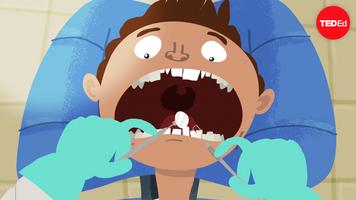
When a team of archeologists recently came across some 15,000-year-old human remains, they made an interesting discovery: the teeth of those ancient humans were riddled with holes. So what causes cavities, and how can we avoid them? Mel Rosenberg takes us inside our teeth to find out. [Directed by Andrew Foerster, narrated by Addison Anderson, m...
Enda Butler: Oxygen's surprisingly complex journey through your body

Oxygen forms about 21% of the air around us. In your body, oxygen forms a vital role in the production of energy in most cells. But if gases can only efficiently diffuse across tiny distances, how does oxygen reach the cells deep inside your body? Enda Butler tracks the surprisingly complex journey of oxygen through your body. [Directed by Dalib...
Sarthak Sinha: How a wound heals itself
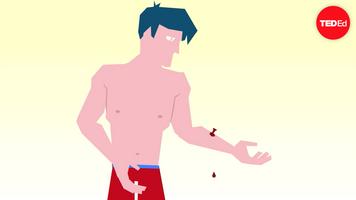
Our skin is the largest organ in our bodies, with a surface area of about 20 square feet in adults. When we are cut or wounded, our skin begins to repair itself through a complex, well-coordinated process. Sarthak Sinha takes us past the epidermis and into the dermis to investigate this regenerative response.
Henry Ou: What is earwax — and should you get rid of it?
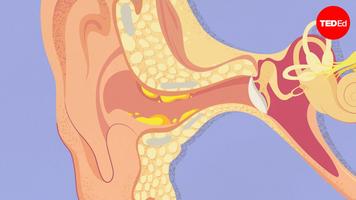
Grooming paraphernalia has been found in numerous archeological sites, many of which have included earwax removal tools. And earwax evacuation remains a popular hygienic habit today. But what is earwax? And are the efforts to eliminate it actually good for us? Henry C. Ou explores the important role earwax plays in our health. [Directed by Yuriy...
Heba Shaheed: Is it bad to hold your pee?
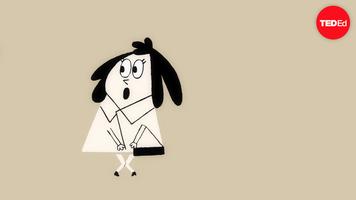
Humans should urinate at least four to six times a day, but occasionally, the pressures of modern life force us to clench and hold it in. How bad is this habit, and how long can our bodies withstand it? Heba Shaheed takes us inside the bladder to find out. [Directed by Artrake Studio, narrated by Julianna Zarzycki].
Gabriel Heras: Humanizar los cuidados intensivos
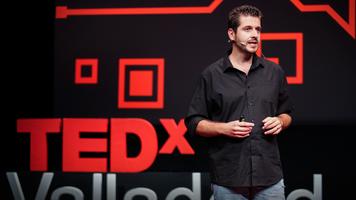
Las unidades de cuidados intensivos (UCI) de los hospitales salvan muchas vidas. Pero ¿cuál es la secuela emocional en los pacientes? Gabriel Heras describe el dolor emocional de los pacientes y de sus personas cercanas al pasar por la UCI y describe su proyecto para humanizar los cuidados intensivos.
Anees Bahji: How do steroids affect your muscles— and the rest of your body?
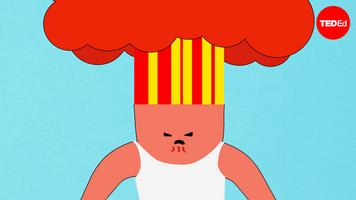
Steroids. They've caused global scandals. They're banned in most athletic competitions. Yet the same properties that help elite athletes and bodybuilders improve performance also make steroids valuable for treating many illnesses and injuries, such as AIDS and cancer. So if steroids are used as medicine, they must be safe to use recreationally, ...